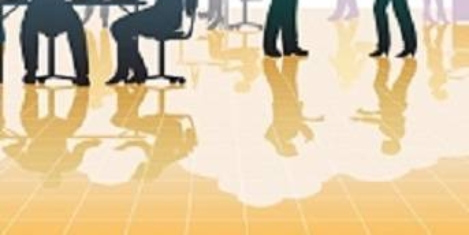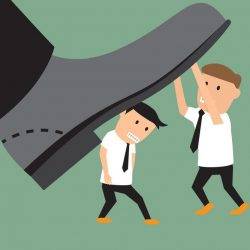February 13, 2019
Organisational innovation being stymied by lack of senior support
 A lack of senior stakeholder support is the greatest inhibitor of change, new research suggests as despite considerable enthusiasm to innovate, organisations are being thwarted by tight resources and strong internal resistance. The data commissioned by KCOM found that organisations are also limiting themselves by turning away the specialist skills and experience that could help them advance, through overly predictive procurement processes. They are however, eager to be more competitive, which is why organisations are making big investments in innovation projects. Almost half (43 percent) consider driving digital transformation to improve competitive advantage to be their top priority in the next year. A further 32 percent are allocating at least 20 percent of their IT budget to new projects. Both public and private sector organisations are also taking an increasingly people-centric approach to digital transformation. In the next year, 80 percent said they would incentivise staff retention through training, accreditation and career development to deliver on their innovation strategy. This is compared to 71 percent who said they would do so by investing in new technologies.
A lack of senior stakeholder support is the greatest inhibitor of change, new research suggests as despite considerable enthusiasm to innovate, organisations are being thwarted by tight resources and strong internal resistance. The data commissioned by KCOM found that organisations are also limiting themselves by turning away the specialist skills and experience that could help them advance, through overly predictive procurement processes. They are however, eager to be more competitive, which is why organisations are making big investments in innovation projects. Almost half (43 percent) consider driving digital transformation to improve competitive advantage to be their top priority in the next year. A further 32 percent are allocating at least 20 percent of their IT budget to new projects. Both public and private sector organisations are also taking an increasingly people-centric approach to digital transformation. In the next year, 80 percent said they would incentivise staff retention through training, accreditation and career development to deliver on their innovation strategy. This is compared to 71 percent who said they would do so by investing in new technologies.









 Despite the fact that a large number of employees continue to be relatively sedentary during their working day, there a growing demand for benefits that could help them achieve a healthier lifestyle, claims new research from Personal Group. More than 40 percent of employees surveyed want health insurance to be added to their workplace benefits programme; more than a third (34 percent) would like their employer to introduce discounted gym memberships, and more than one in four (28 percent) want to have access to rewards linked to physical activity. Almost a quarter (24 percent) want physical health-based incentives, such as interdepartmental step challenges or competitions added to their company-wide benefits programme. However, data shows that 70 percent of those surveyed who sit down to work only get up from their desk or workstation every hour at best, and 38 percent only move every two hours or more. Furthermore, a large proportion of employees eat at their desk or workstation on a regular basis (32 percent) and the majority choose to drive to work (60 percent) over walking (15 percent) or cycling (3.5 percent).
Despite the fact that a large number of employees continue to be relatively sedentary during their working day, there a growing demand for benefits that could help them achieve a healthier lifestyle, claims new research from Personal Group. More than 40 percent of employees surveyed want health insurance to be added to their workplace benefits programme; more than a third (34 percent) would like their employer to introduce discounted gym memberships, and more than one in four (28 percent) want to have access to rewards linked to physical activity. Almost a quarter (24 percent) want physical health-based incentives, such as interdepartmental step challenges or competitions added to their company-wide benefits programme. However, data shows that 70 percent of those surveyed who sit down to work only get up from their desk or workstation every hour at best, and 38 percent only move every two hours or more. Furthermore, a large proportion of employees eat at their desk or workstation on a regular basis (32 percent) and the majority choose to drive to work (60 percent) over walking (15 percent) or cycling (3.5 percent).
























February 14, 2019
Digital transformation requires more than just new technology
by Arnab Banerjee • Comment, Technology
(more…)